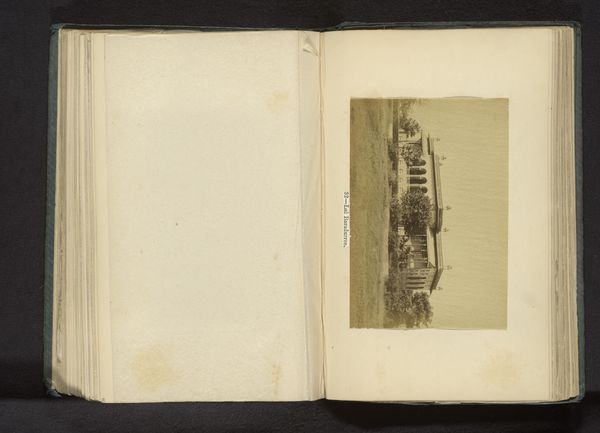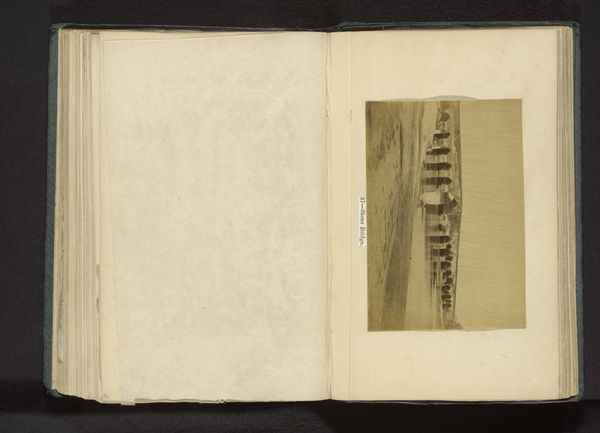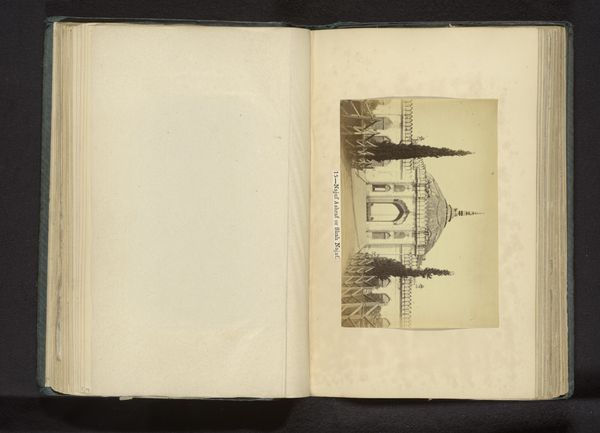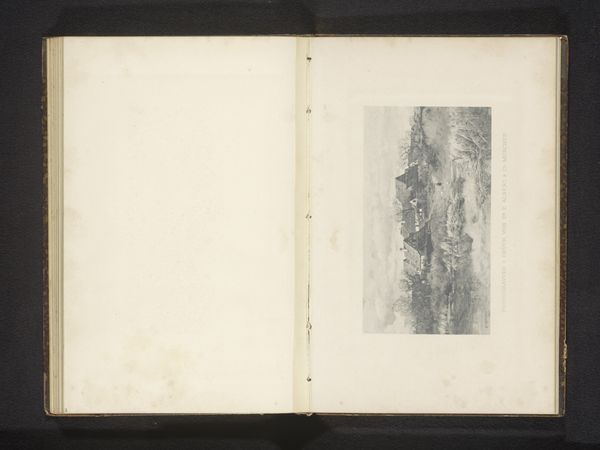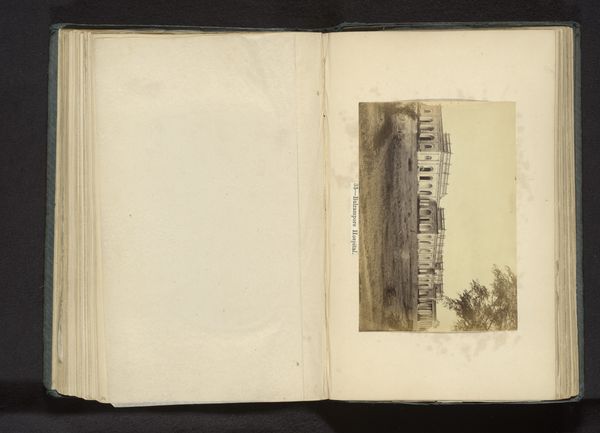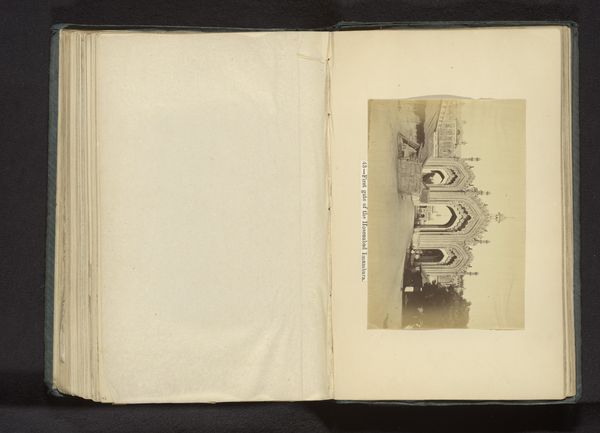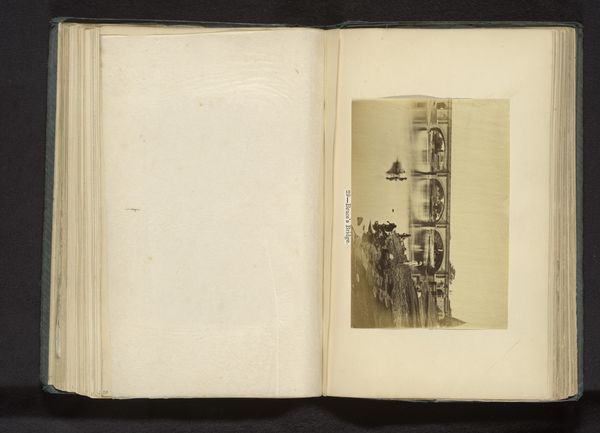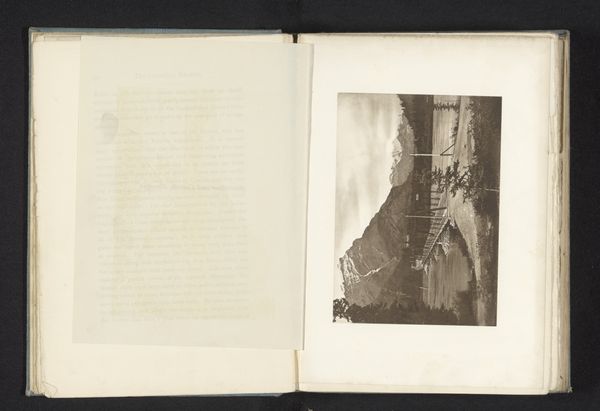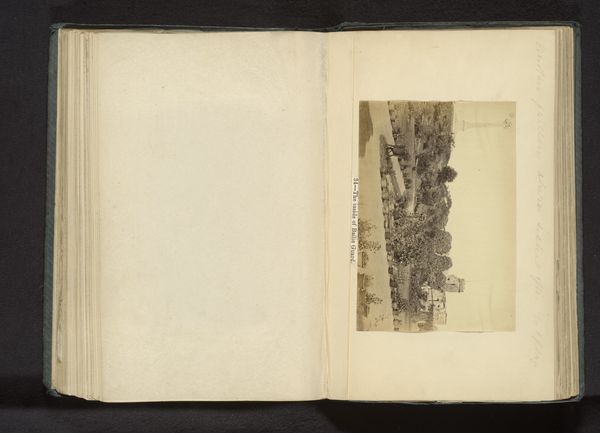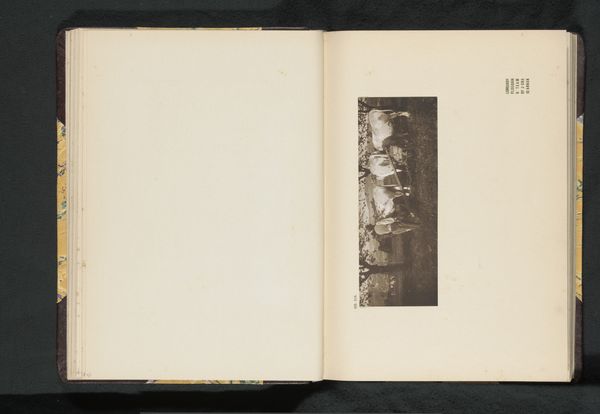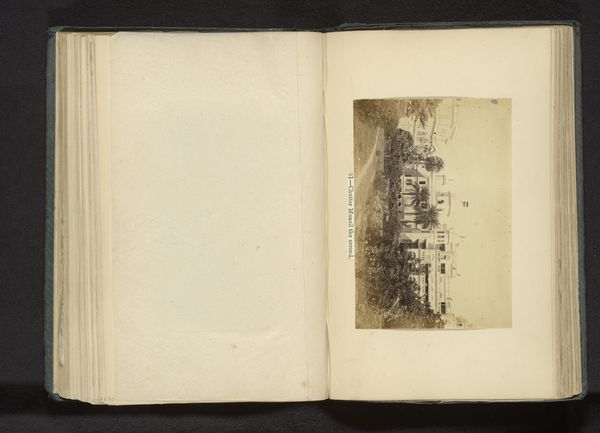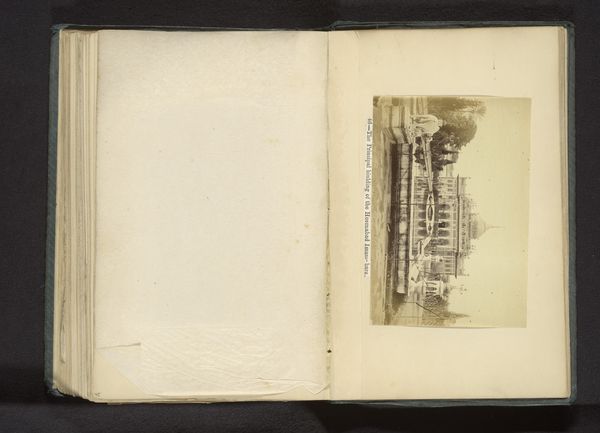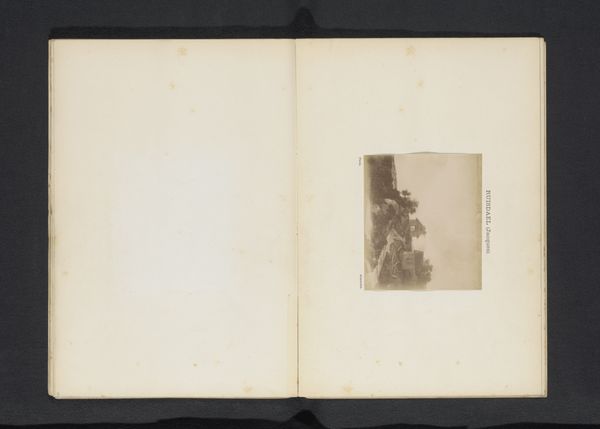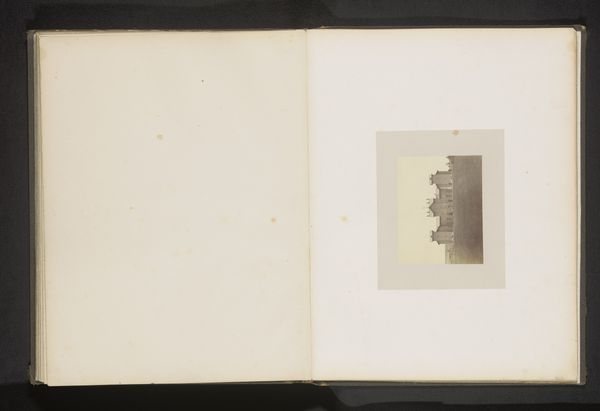
photography, albumen-print
#
aged paper
#
homemade paper
#
paper non-digital material
#
paperlike
#
asian-art
#
sketch book
#
landscape
#
paper texture
#
photography
#
personal sketchbook
#
folded paper
#
orientalism
#
paper medium
#
design on paper
#
albumen-print
Dimensions: height 105 mm, width 153 mm
Copyright: Rijks Museum: Open Domain
Curator: This fascinating albumen print, titled “Gezicht op Machi Bhawan in Lucknow,” is attributed to Darogha Ubbas Alli and dates to before 1874. Editor: It’s evocative, isn't it? A delicate landscape emerging from the aged paper, softened by time. The sepia tones lend an almost dreamlike quality. Curator: Indeed. This work gives us a window into British colonial India through the eyes of an Indian photographer. Darogha Ubbas Alli documented architectural landscapes in the region, likely as a commercial venture catering to both local elites and the British. Editor: The composition, while straightforward, highlights the textures of the land against the architectural details. The artist cleverly uses a simple palette to define forms, relying on light and shadow. Curator: Right, and consider the implications of photographing such a site. Machi Bhawan was a significant complex, reflective of local power dynamics but also subject to colonial scrutiny and documentation. This image participates in a larger project of constructing a visual record. Editor: Absolutely, but it's equally valid to view it as a study of contrasts - the formal structure of the buildings against the apparent wilderness in the background. Also, the slightly faded tones somehow deepen its elegiac impact on the viewer. Curator: Precisely. It reveals not only the architectural landscape but also a complex interplay of social roles and perspectives under colonial rule. This image exists as both a record and an interpretation. Editor: Well said. Considering it purely from a Formalist stance is to only scratch the surface; yet considering its interplay between composition and sepia-toned beauty, you get such a deeper appreciation! Curator: Agreed. I come away feeling deeply about how access, control, and perspective impact imagery even in our modern moment.
Comments
No comments
Be the first to comment and join the conversation on the ultimate creative platform.
